Ex-president says sanctions won't sway Russia as conflict enters second month
Former president Dmitry Medvedev says sanctions won’t sway Russia as the West cranks up pressure on Moscow and the conflict with Ukraine enters the second month.
Medvedev, President Vladimir Putin’s predecessor and deputy head of Russia’s Security Council, was quoted as saying Friday that it was "foolish" to believe that Western sanctions against Russian businesses could have any effect on Moscow.
“The sanctions will only consolidate Russian society and not cause popular discontent with the authorities,” Medvedev asserted.
"Let us ask ourselves: can any of these major businessmen have even the tiniest quantum of influence of the position of the country's leadership?" Medvedev added. "I openly tell you: no, no way."
The former president said opinion polls showed that three-fourths of Russians supported the Kremlin's decision to carry out a military operation in Ukraine and even more supported Putin.
The Kremlin said Russia's exclusion from the G20 grouping of major economies -- sought by US President Joe Biden -- would not be "fatal".
"As far as the G20 format is concerned, it's important," Kremlin spokesman Dmitry Peskov told reporters. "But in the current situation, when most of the participants in this format are in a state of economic war with us, nothing fatal will happen."
Western governments have slapped unprecedented sanctions against Moscow, but stopped short of getting directly involved in the conflict.
The US and the EU announced a task force on Friday aimed at reducing Europe's reliance on Russian fossil fuels.
The initiative being unveiled by President Biden and EU commission president Ursula von der Leyen will see the US strive to help supply Europe with an extra 15 billion cubic meters of liquefied natural gas this year, a statement said.
About 10% of EU gas needs are met by domestic production. Russia typically supplies 41% of the rest of the bloc's needs, equivalent to 155 bcm, mostly through pipelines and about 15 bcm in the form of LNG.
The Der Spiegel magazine said Germany seeks to halve imports of Russian oil by mid-year while reducing its dependence on the nation’s gas and coal.
Russian gas will amount to as little as 30% of imports by the end of the year, down from more than half currently, the magazine said, adding the aim is to reduce oil imports almost to nothing by then.
Biden to visit Polish town near Ukraine border
President Biden was to be greeted on Friday by Polish President Andrzej Duda in Rzeszow, about 80 kilometers (50 miles) from the Ukrainian border.
The trip is designed to underscore Washington’s willingness to defend NATO allies, as fears rise that the month-old crisis in Ukraine could spill westward.
Biden’s trip comes as the West faces urgent questions about what more it will do to help Ukraine withstand the Russian military operation.
On the war front, two Russian missiles struck a Ukrainian military unit on the outskirts of the city of Dnipro, causing "serious destruction," regional governor Valentyn Reznychenko said on social media.
Rescuers were searching for survivors among the debris after the strike, Reznychenko said.
Russia's armed forces also destroyed a major fuel depot outside Kiev in a missile strike, the country's defense ministry said.
Spokesman Igor Konashenkov said the strike happened on Thursday evening, using Kalibr cruise missiles fired from the sea. Konashenkov said the depot was used to supply Ukraine's armed forces in the center of the country.
Meanwhile, the northern Ukrainian city of Chernihiv has in effect been cut off by Russian forces, the regional governor said, adding that the city was under fire from artillery and warplanes.
Ukraine's defense ministry said Russian forces had further managed partially to create a land corridor to Crimea from territory in Ukraine's Donetsk region.
Britain's defense ministry, however, said Ukraine had seized back towns and defensive positions up to 35 kilometers east of the capital.
The mayor of a suburb east of Kiev said Ukrainian troops had recaptured a nearby village and thousands of civilians were now leaving the area, answering a call from the authorities to get out of the way of the counterattack.
Unnamed US officials were also quoted by Reuters as claiming that Russian precision-guided missiles were failing up to 60% of the time in Ukraine.
US defense officials told reporters this week that the Pentagon assesses that Russia has launched more than 1,100 missiles of all kinds since the war began.
Citing US intelligence, three officials said the United States estimated that Russia's failure rate varied day-to-day, depended on the type of missile being launched, and could sometimes exceed 50%. Two of them said it reached as high as 60%.
In recent days, Russia's defense ministry has lauded the professionalism and missile technology of the armed forces. It says claims of failures are misleading propaganda distributed by Russia's enemies headed by the United States.
Officials in the strategic port city of Mariupol said some 300 people could have died in last week's Russian strike on a theater where hundreds were sheltering.
"From eyewitnesses, information is emerging that about 300 people died in the Drama Theater of Mariupol following strikes by a Russian aircraft," Mariupol city hall wrote on Telegram.
The head of the UN human rights team in Ukraine said monitors had received increasing information on mass graves in Mariupol, including one that appeared to hold 200 bodies.
Ukrainian officials also said Russian strikes killed four civilians and wounded several others while targeting a medical facility in Ukraine's second city of Kharkiv.
Israeli intelligence help
A top aide to Ukrainian President Volodymyr Zelensky revealed that the spy agencies of Ukraine and Israel were “cooperating very closely” even as he complained that Kiev had not received the security assistance it had requested from Israel.
"Our intelligence is cooperating very closely with Israeli intelligence,” Andriy Yermak told reporters during an online briefing.
A Hebrew newspaper also reported that some former special fighters of the Israeli military had entered Ukraine to train militants to fight Russian forces.

The ongoing crisis in Ukraine has taken hostility between Russia and the US to the breaking point.
The Kremlin said on Friday that US talk of Russia possibly resorting to chemical weapons in Ukraine was a tactic to divert attention away from awkward questions for Washington.
Peskov told a conference call with reporters that the military would submit proposals to President Putin on how Russia should strengthen its defenses in response to NATO beefing up its eastern flank.
Russia also said it had "never" violated international legislation after Zelensky accused Moscow of using phosphorus bombs in his country.
Meanwhile, a senior official of Russia's State Duma said biological laboratories in Ukraine funded by the US have violated the United Nations Biological Weapons Convention and generated irreversible consequences, which requires thorough investigation to uncover the truth.
Irina Yarovaya, deputy chairwoman of Russian parliament’s lower house, accused the US of “secretly developing biological technologies in the territories of other sovereign nations, and prohibiting these nations from disclosing the nature of these experiments to their people".
Delegations from Kiev and Moscow have been negotiating for peace and ceasefire in recent weeks, but apparently, no breakthrough has been achieved so far.
On February 24, Putin announced what he called a “special military operation” in Ukraine.
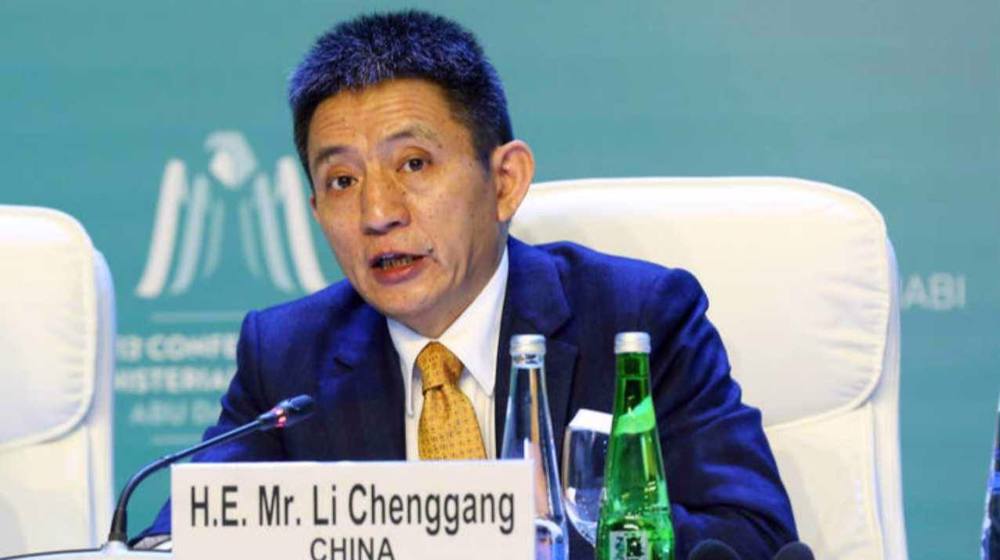
China condemns ‘unilateral and arbitrary’ US tariffs
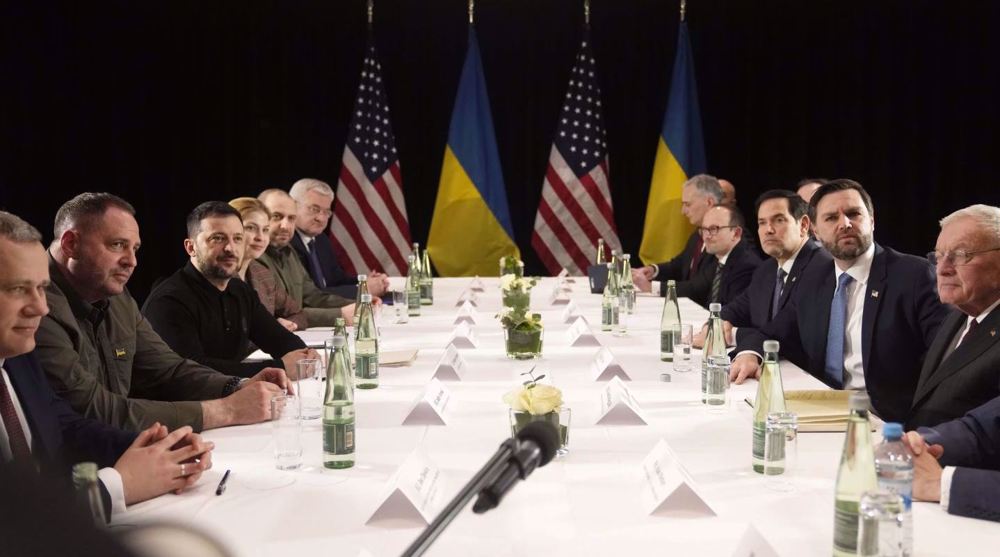
US offers Ukraine deal to access its minerals but with no guarantees
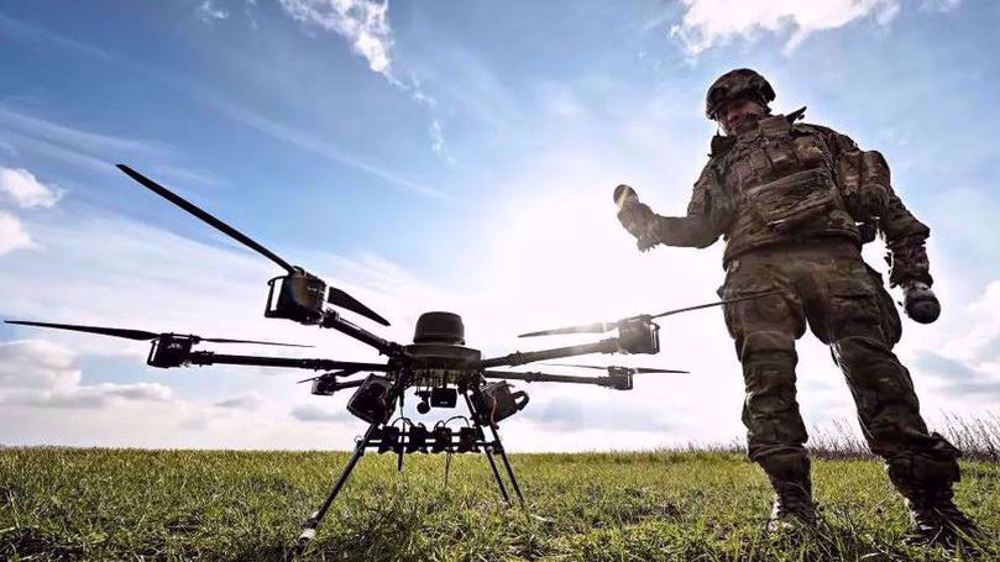
Leaked documents reveal US strategies to prolong Russia-Ukraine war
Hamas says ready to free all Israeli captives at once in phase two of truce
Israel kills one, injures two in southern Lebanon: Media
‘Colonial powers’ have no right to determine fate of Palestine: Qalibaf
Explainer: Why are MK-84 2,000-lb bombs approved by Trump for Israel so deadly?
President Pezeshkian: Iran, Qatar opening new avenues for cooperation
VIDEO | Displaced return home despite destruction
IRGC unveils new homegrown smart missiles, drones drill
Iran launches project to extract, purify helium from natural gas


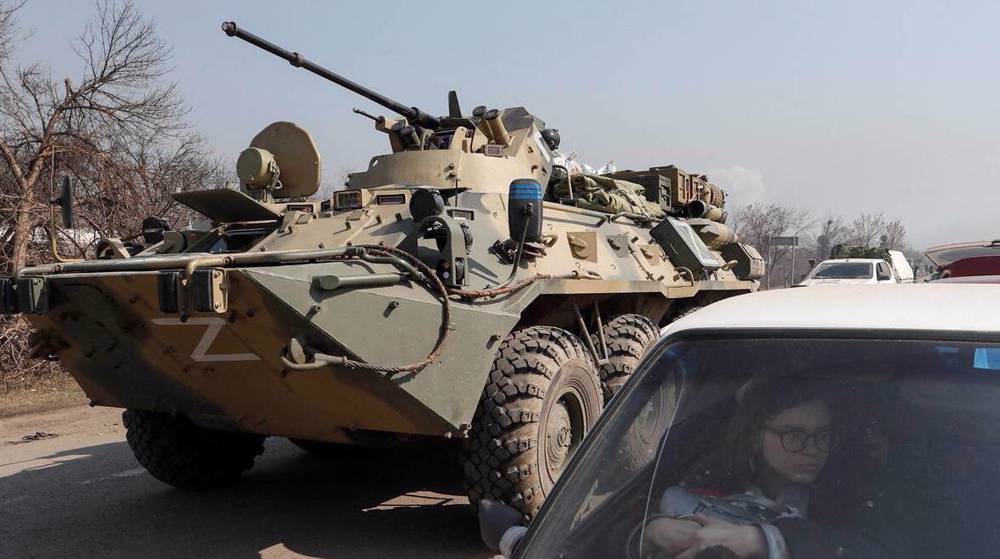

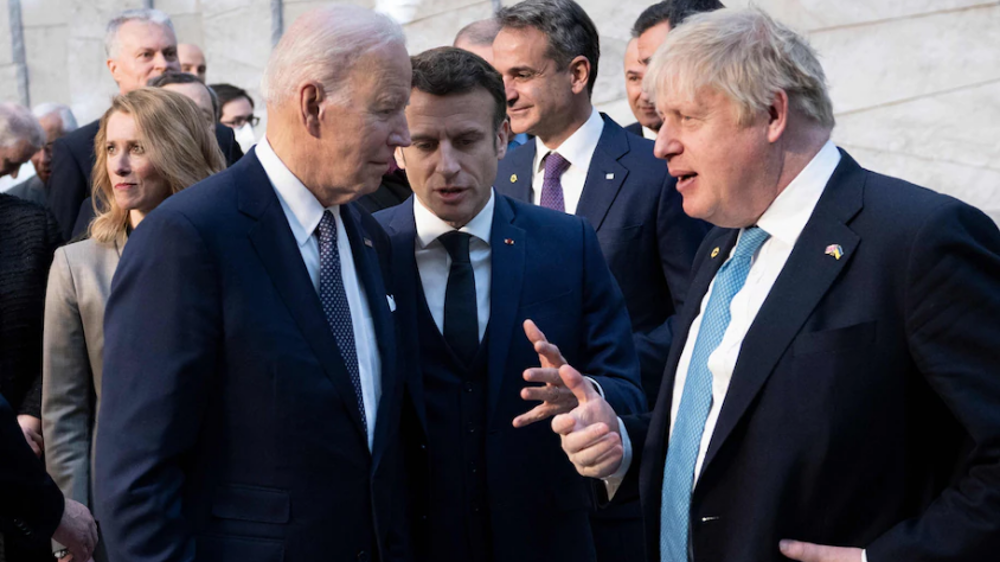



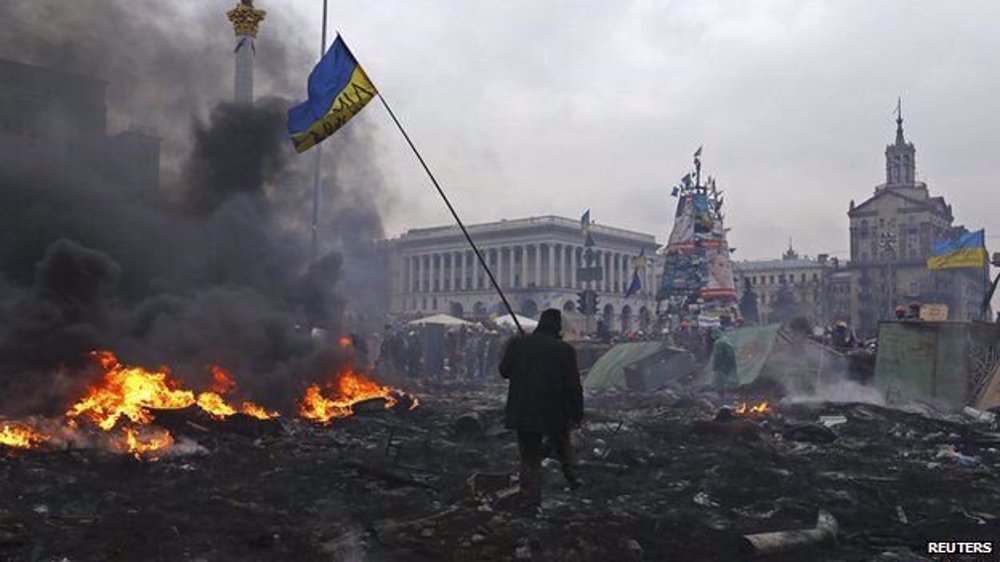

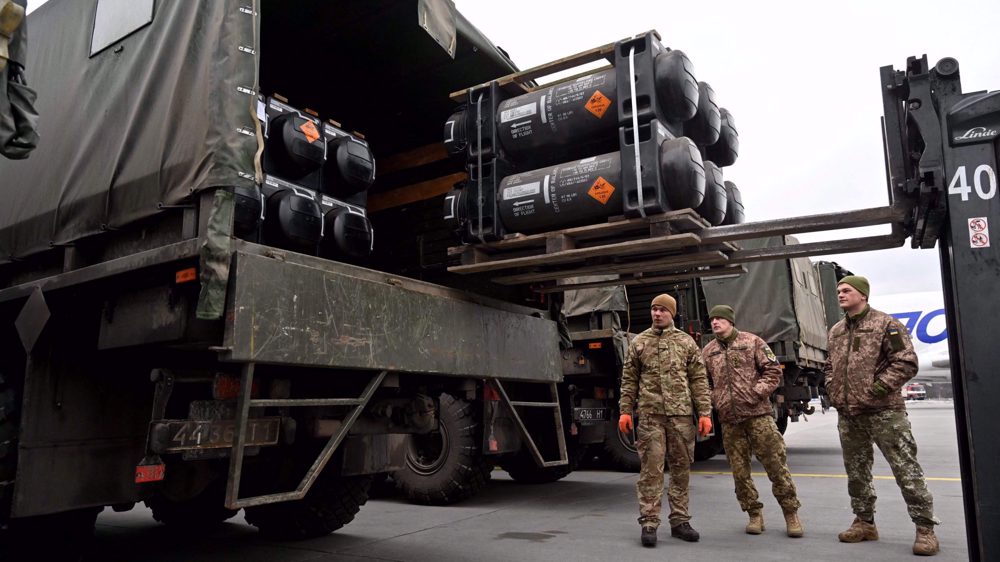
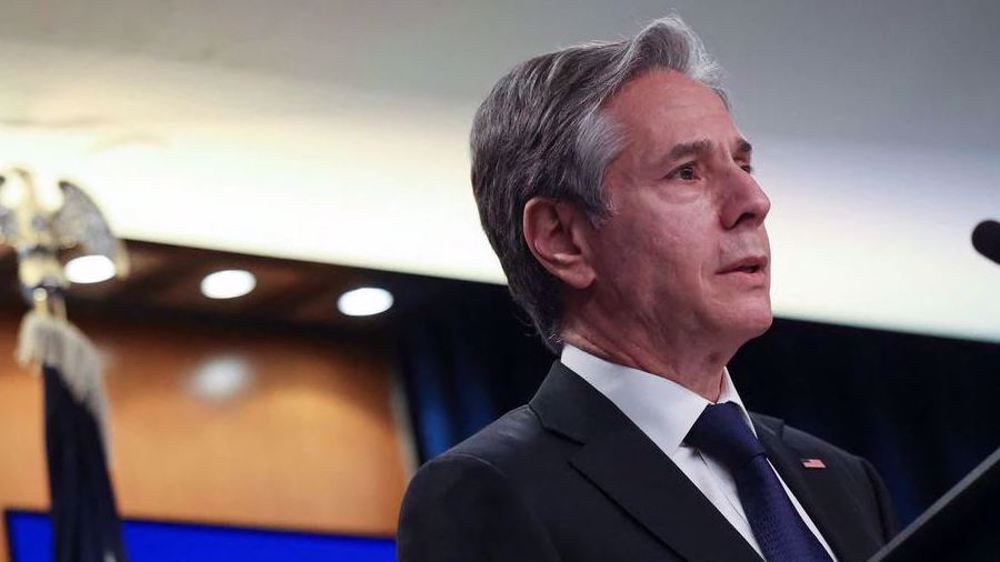
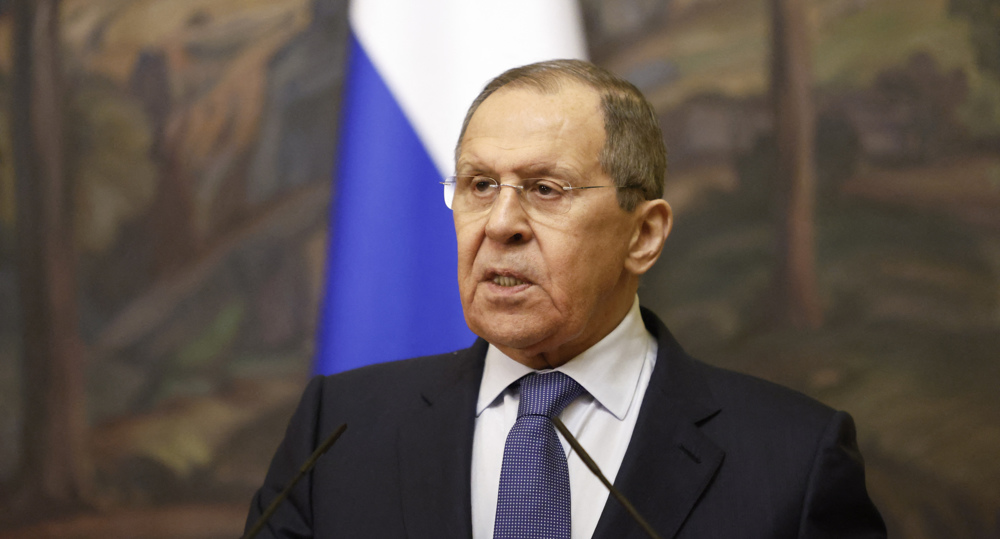
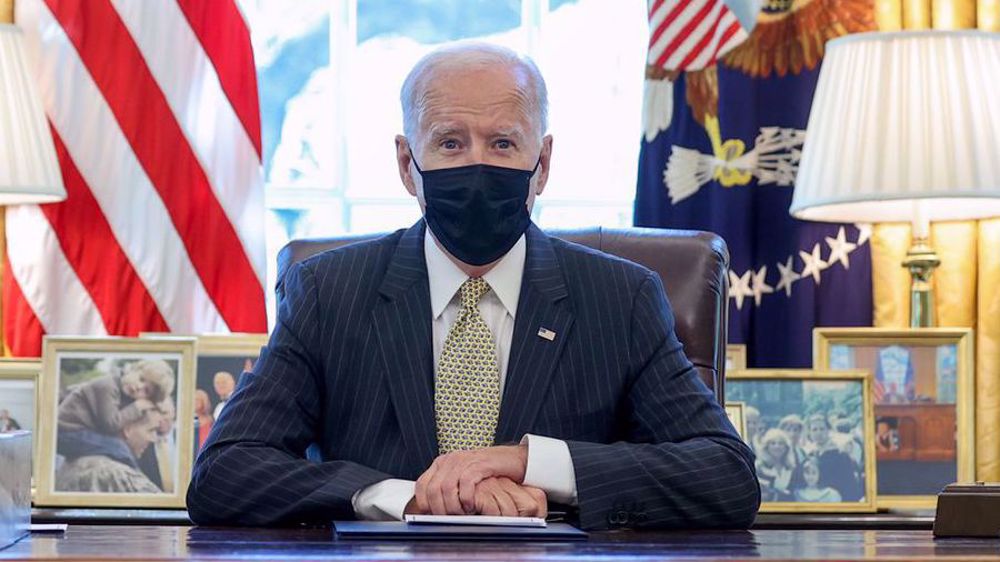

 This makes it easy to access the Press TV website
This makes it easy to access the Press TV website